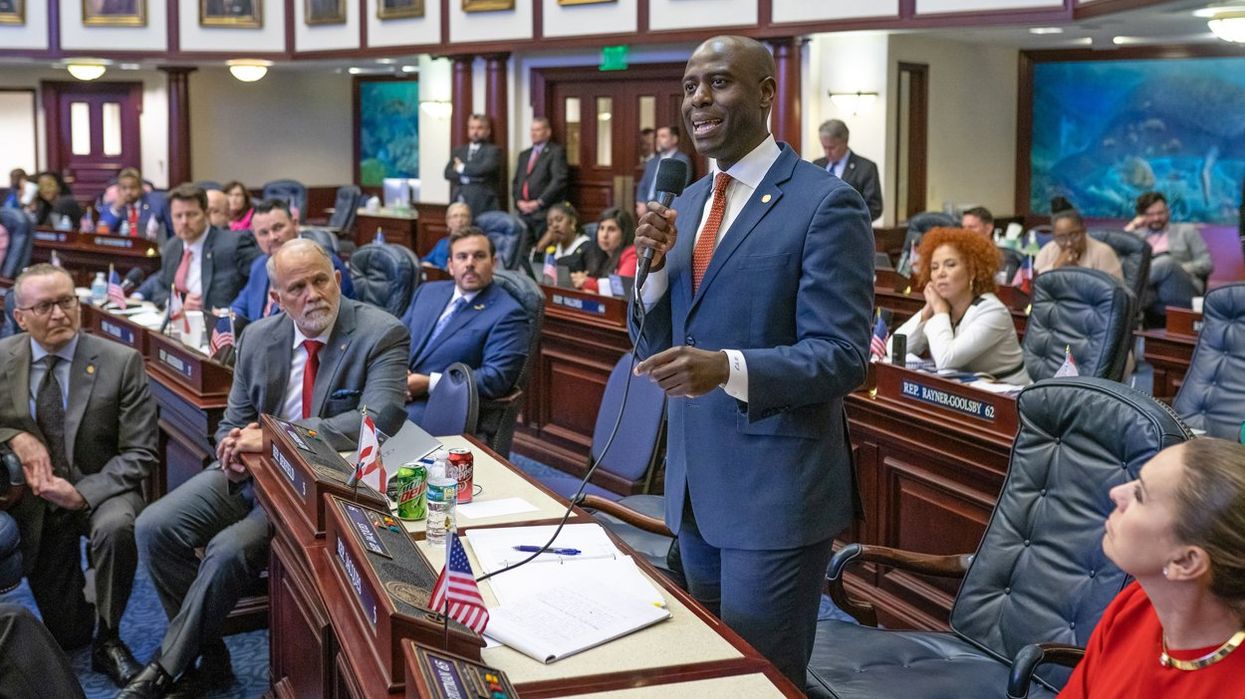Goldsmith is the senior communications director for The Future Caucus.
In the corridors of the Florida House of Representatives, where the Republican Party holds a formidable majority, GOP Rep. Berny Jacques emerges as a distinctive figure who works across the aisle on behalf of the 59th district and all of Florida. Jacques’ journey from Port-au-Prince, Haiti, to the political landscape of Florida informs his approach to politics and dedication to safeguarding opportunities for his constituents.
“I got involved in public policy because I want to protect the freedoms and opportunities that I had growing up in the state of Florida,” Jacques said. “That experience came through the lens of a first generation American.”
Fleeing political unrest in Haiti at the age of 7, Jacques and his family became the personification of the American dream. His parents worked two, often three jobs concurrently after settling in Florida in 1994, “achieving much in a short amount of time.”
“They had to work hard to put their children in a better position,” said Jacques. “To see me go to college and graduate and become an attorney all within their lifetime — that’s a strong testament to what this nation has to offer.”
Educated at Washington Adventist University before earning a law degree from Stetson University College of Law, Jacques transitioned from the courtroom to roles at Big Brothers Big Sisters of Tampa Bay and the Pinellas County State Attorney’s Office.
Reflecting on the values instilled by his parents, Jacques says he recognized his success in America didn’t come out of random happenstance.
“The older I got, the more mature I became, I realized that it wasn't by accident,” Jacques said. “There had to be policies in place to allow families like mine to achieve what we were able to accomplish.”
Within Florida's political sphere, a Republican Party stronghold for a quarter-century, Jacques portrays himself as a staunch proponent of bipartisan cooperation.
As of 2024, 84 Republican lawmakers make up the 120-member Florida House of Representatives. Among the 40 members comprising the Florida Senate, 28 are Republicans. The state is led by Republican Gov. Ron DeSantis. But while one party holds most of the political control, Florida voters are more split. As of 2023, approximately 5 million registered voters identify with the Republican Party while nearly 4 million identify with the Democratic Party.
Rep. Berny Jacques | Floridawww.youtube.com
Jacques actively seeks common ground with his Democratic counterparts, emphasizing the importance of every voice, regardless of party affiliation.
“Those in the minority party still represent a constituency. These are Floridians as well,” Jacques said. “Every member has a right to stand on the House floor to make their voices heard. And of course, you know, a lot of the time we know how the vote is going to go, but it doesn't mean you roll over somebody simply because you have the numbers.”
In February 2023, Jacques focused his efforts on collaborating with Democratic Rep. Susan Valdes — becoming co-sponsors of a juvenile justice educational reform bill. Leveraging his experience as a former prosecutor, Jacques advocated for a standardized curriculum within the Department of Justice for juvenile facilities across counties.
Previously, education for juveniles held in Florida’s facilities would be tied to school districts, leading to different educational standards from county to county. Jacques says he knew education could be part of an early intervention strategy that would prevent them from entering a life of crime.
The program creates a uniform education system within the department’s residential commitment programs, which are designed to “rehabilitate offenders.”
“The way we did it is by revamping the whole curriculum within the Department of Justice to have one provider that is experienced in these types of cases,” Jacques said.
Jacques’ prosecutorial background also prompted him to work on a bipartisan measure centered on the Department of Corrections with Democratic Rep. Diane Hart. Signed by the governor in June 2023, the law provides inmates in Florida prisons with the opportunity to work as certified peer support specialists while helping them find employment after completing their sentences.
“I’m a conservative, you know, she’s on the left, but this isn’t an issue,” said Jacques. “You can disagree without being disagreeable; you can find [impactful] things that you can work on [together].”
Jacques says regardless of the balance of power, there is also a “balance of personal convictions as well as folks you represent, and that can lead to polarization, but it’s in how you approach it.” He says what’s key to advancing bipartisanship and the ability to get bills passed lies in conducting legislative affairs with respect and ensuring an environment where people can be heard, and “all Floridians' voices can be amplified within the chambers.”
Jacques explains there are a lot of ways one can do that — “one of the ways is just getting in a room and hashing it out.” Sitting in a room with an opponent and a hard copy of a bill — going line by line to learn what each side can or cannot live with — remains his go-to strategy.
Public safety, educational opportunities and economic development top Jacques’ priorities — he believes they’re issues that resonate with his constituents from all political affiliations.
“I think when you assess those three essential things, they transcend partisanship,” Jacques said. “All my constituents, when I go door to door – whether they're Democrat, nonparty affiliated or Republicans – they want to be safe in their communities. They want their kids to have great educational outcomes, and they want to make sure there are jobs available so that they can put food on the table, pay the bills, and save a little bit for retirement and vacations.”



















Marco Rubio is the only adult left in the room